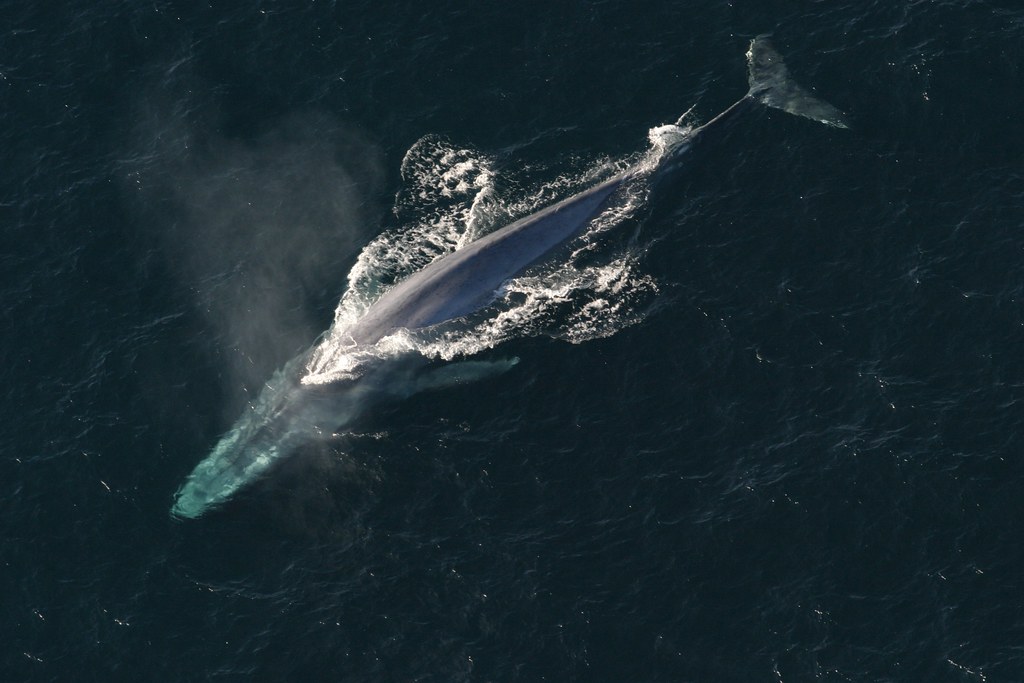Science News Roundup: For whales, study shows gigantism is in the genes; Meat cultivated from cow cells is kosher, Israel's chief rabbi rules and more
Last year, which saw a sharp reversal from a record 2021 with $45.7 billion in funding, marked the toughest period for space startups since the economic crisis in 2008. For whales, study shows gigantism is in the genes The blue, fin, bowhead, gray, humpback, right and sperm whales are the largest animals alive today.

Following is a summary of current science news briefs.
Canada unveils goal to support domestic rocket launches
Canada on Friday announced a multi-year plan to support the first privately built rocket launches in the country and develop new launch regulations, as global demand for space-based services soars. The goal, presented at the Canadian Space Agency's headquarters by transportation minister Omar Alghabra, is aimed at significantly expanding the country's space capabilities and commercial space sector, currently composed of firms such as Telesat and MDA and the country's presence on the International Space Station.
Meat cultivated from cow cells is kosher, Israel's chief rabbi rules
Israel's chief rabbi has given a kosher stamp of approval this week to a company looking to sell steak grown from cow cells - while effectively taking the animal itself out of the equation. Cultivated meat, grown from animal cells in a lab or manufacturing plant, has been getting a lot of attention as a way to sidestep the environmental toll of the meat industry and address concerns over animal welfare.
As 'skyglow' grows, study documents glaring global light pollution
Light pollution caused by the incessant nighttime glow of electric lights appears to be intensifying, according to research using observations from tens of thousands of people at various locations around the world. The study, published on Thursday, found that the number of visible stars reported at the observation sites from 2011 to 2022 decreased by an amount indicating an increase in nocturnal sky brightness of 7 to 10% annually, higher than previously measured using satellite data.
Space startups funding halved in 2022 as investors shift to safer bets
Investments in space startups more than halved to $21.9 billion in 2022 as their venture-capital backers sought safer avenues in the face of a grim economic outlook, VC firm Space Capital said, adding that it expects more pain for the sector this year. Last year, which saw a sharp reversal from a record 2021 with $45.7 billion in funding, marked the toughest period for space startups since the economic crisis in 2008.
For whales, study shows gigantism is in the genes
The blue, fin, bowhead, gray, humpback, right and sperm whales are the largest animals alive today. In fact, the blue whale is the largest-known creature ever on Earth, topping even the biggest of the dinosaurs. How did these magnificent marine mammals get so big? A new study explored the genetic underpinnings of gigantism in whales, identifying four genes that appear to have played crucial roles. These genes, the researchers said, helped in fostering great size but also in mitigating related disadvantageous consequences including higher cancer risk and lower reproductive output.
(With inputs from agencies.)
- READ MORE ON:
- Space Capital
- Israel
- Canadian Space Agency's
- Omar Alghabra
- Telesat
- Canada
- Earth
ALSO READ
Israeli defence minister says a direct Iranian attack would require appropriate response
"She was walking barefoot, her pyjamas soaked in blood": Mother of Israeli hostage urges world to free daughter from Hamas
Israel reports attempted terror attack at military post
"Knows a thing or two about terrorism, how to confront it": Former Israeli envoy lauds Indian support after Hamas attacks
Israel condemns new Irish PM's Gaza comments










